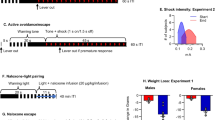Heading
Abstract
Rationale. Dopamine transmission acting at either the D1 or D2 receptor level is known to influence the stimulant properties of caffeine, an antagonist of adenosine A1 and A2 receptors. In contrast, how caffeine influences the motor stimulant properties of selective D1 and D2 receptor agonists is still undefined.
Objectives. In this study the acute motor response to the dopamine D1 receptor agonist SKF 77434 and the D2/D3 receptor agonist quinpirole was studied in rats treated subchronically with caffeine (15 mg/kg i.p., on alternate days) or vehicle, either in the test cage (paired group) or in the home cage (home group).
Methods and results. Repeated caffeine administration did not induce any significant increase in motor activity or in stereotyped behavior during the course of treatment, indicating that the response to caffeine itself did not develop sensitization. Three days after the last caffeine or vehicle administration, rats were challenged with caffeine, SKF 77434, or quinpirole. Caffeine (5 mg/kg i.p.) elicited the same motor stimulant effects in both caffeine- and vehicle-pretreated rats, confirming the presence of neither tolerance nor sensitization to caffeine itself. SKF 77434 (3 mg/kg s.c.) elicited a higher locomotor activation in caffeine- than in vehicle-pretreated rats, whereas quinpirole (0.15 mg/kg s.c.) induced a similar locomotor activation and a higher stereotyped behavior in caffeine-pretreated rats as compared to rats pretreated with vehicle. The sensitized response to SKF 77434 and quinpirole was not due to environmental conditioning since the responses were similar in either paired or home group.
Conclusions. The results provide support for the presence of long-term functional interactions between drugs acting at the adenosine and dopamine receptor levels. Subchronic caffeine, by sensitizing the motor stimulant effects of dopamine D1 and D2 receptor agonists, produces adaptive changes which might result in a potentiation of the dopaminergic component of drugs of abuse.
Similar content being viewed by others
Author information
Authors and Affiliations
Additional information
Electronic Publication
Rights and permissions
About this article
Cite this article
Cauli, O., Morelli, M. Subchronic caffeine administration sensitizes rats to the motor-activating effects of dopamine D1 and D2 receptor agonists. Psychopharmacology 162, 246–254 (2002). https://doi.org/10.1007/s00213-002-1103-5
Received:
Accepted:
Issue Date:
DOI: https://doi.org/10.1007/s00213-002-1103-5




